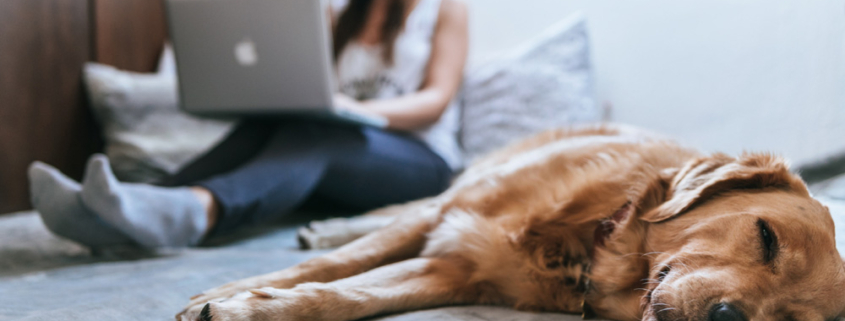Pet Owners: Keeping Your Pets Safe
Pets are not just animals; they are cherished members of our families. As responsible pet owners, it’s our duty to ensure their safety and well-being, especially in times of emergencies or disasters. This article delves into the aspects of pet preparedness, catering to a wide range of common household pets, including dogs, cats, fish, rabbits, reptiles, and more. By being proactive and informed, you can help protect your beloved companions when the unexpected occurs, whether that be evacuation, or being home-bound.
Dogs and Cats
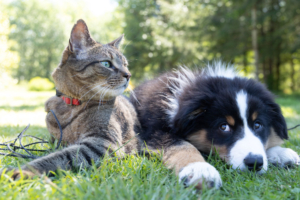
- Identification: Ensure your dogs and cats have well-fitted collars with up-to-date ID tags, including your contact information. Additionally, consider getting them microchipped to increase the chances of a safe return if they get lost.
- Emergency Kit: Prepare a comprehensive pet emergency kit. This kit should include an ample supply of pet food, water, medications, first-aid supplies, leashes, and carriers. Don’t forget to pack some of your pet’s favorite toys or blankets to provide comfort and familiarity during trying times.
- Evacuation Plan: Practice evacuation routines with your pets, making sure they are familiar with their carriers or travel crates. Be aware of pet-friendly shelters or hotels in your area, and have a list of their contact information. Knowing where you can take your pets during an emergency will alleviate your stress.
- Medical Records: Maintain copies of your pets’ medical records, including vaccination records, medications, and your veterinarian’s contact information. These records can be important if your pets require medical attention during a disaster.
- Safety During Disasters: During severe storms or disasters, keep your pets indoors and away from windows, glass doors, and other breakable items. Use calming techniques, such as soft music or a favorite toy, to help reduce their anxiety during noisy or chaotic situations.
- Pet-Proofing: Just as you would childproof your home, pet-proofing helps to keep your furry friends safe. Secure hazardous materials, chemicals, and any other dangers that your pets might access, particularly during a crisis.
Fish
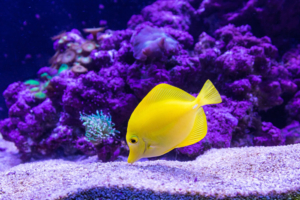
- Battery-Powered Aerator: For aquarium owners, investing in a battery-powered aerator is a wise choice. This device can help maintain oxygen levels in the water if a power outage disrupts your filtration system.
- Fish Food & Supplies: Keep appropriate chemicals and food well stocked. Alternatively keep multi-day fish feeders in stock in to be able to leave the fish home unattended should evacuation be necessary.
- Backup Power Source: Consider having a backup power source, like a generator, to keep your aquarium’s filtration system operational during extended power outages.
- Emergency Transport: Be prepared for the possibility of evacuating with your fish. Have a secure container or bucket on hand for transporting them. Ensure it has a tightly fitting lid to prevent spills and can maintain the water temperature. Adequate oxygen supply is essential, so include a battery-operated air pump if needed.
Rabbits
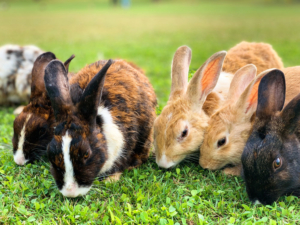
- Hutch Security: Ensure your rabbit’s hutch or cage is sturdy and well-anchored. It should be able to withstand strong winds and potential flooding. Elevating the hutch off the ground can help prevent water damage.
- Food and Water: Store ample food, water, and bedding for your rabbit in airtight containers. Ensure you have a supply of hay, pellets, and fresh greens. Keep their food and water in a safe, accessible location during an emergency.
- Comfort Items: Rabbits are sensitive to changes and stress. It’s important to provide familiar toys and bedding to keep them comfortable during disruptions. A sense of security can go a long way in calming your pet rabbit.
Reptiles
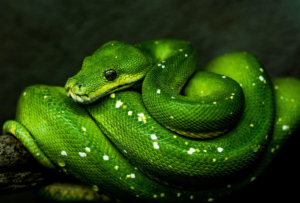
- Portable Enclosure: Reptiles living in terrariums or enclosures will require a secure, portable enclosure for transport during evacuations. Keep disposable hand warmers, rice bags, or hot water bottles available for temporary heat sources. Keep necessary food, vitamins, water misters, etc handy to grab and go.
- Temperature Control: Maintaining the appropriate temperature for your reptiles is vital, especially during power outages. Be ready to use battery-operated heat sources, heat packs, or hot water bottles wrapped in towels to regulate their habitat’s temperature.
- Clean Water & Food: Keep a clean, leak-proof container with water and food for your reptiles during an emergency. Regularly change the water to prevent contamination and provide fresh, clean water to keep your pets healthy.
Other Common Pets
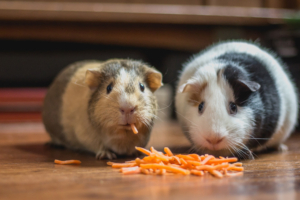

- Birds: For bird owners, have a travel cage or carrier ready for your avian friends. Ensure it’s secure and well-ventilated. Covering the cage during transport can provide comfort to your birds during stressful situations.
- Hamsters and Small Rodents: Small mammals like hamsters should have a secure travel cage with sufficient bedding, food, and a water bottle. Ensure they have a familiar, comfortable environment during transport.
- Guinea Pigs: Guinea pigs require ample hay, pellets, and fresh water. Be prepared with extra supplies, as well as a secure, well-ventilated travel carrier for your guinea pigs.
- Ferrets: For ferret owners, have a travel cage or crate ready for your furry companions. Ensure they have access to food and clean water during evacuations to keep them comfortable and secure.
Conclusion
Pet preparedness is an integral component of disaster planning for pet owners. The first step is thinking about what this plan could look like! By adhering to these guidelines and being proactive in your approach to pet safety, you can help ensure the well-being of your pets during challenging and unexpected situations. Don’t wait until disaster strikes; take the necessary steps to keep your cherished companions safe, secure, and comfortable during times of crisis. Your dedication to their safety is a testament to the strong bond between pets and their loving owners.

